Wellness
oi-Neha Ghosh
on December 2, 2020
Eczema, also known as atopic dermatitis, is an inflammatory skin condition characterised by itchy, red, cracked and scaly rashes. Health experts believe that eczema develops due to a combination of genetic and environmental factors. The environmental triggers include irritants, allergens, microbes, certain foods, hot and cold temperature, hormones and stress.
Eczema is most common in infants. It is estimated that around 50 per cent of infants develop eczema symptoms within their first year of life and around 95 per cent of them experience it before five years of age [1].
Currently, there is no cure for eczema. The treatment for the condition aims to heal the affected skin and prevent eczema flare-ups. Doctors prescribe certain medications to treat eczema symptoms, and in addition, using some natural remedies can also help manage the symptoms of eczema.
Natural remedies can help combat inflammation and harmful bacteria to reduce swelling and prevent infection. Let’s take a look at some of the natural remedies for eczema.
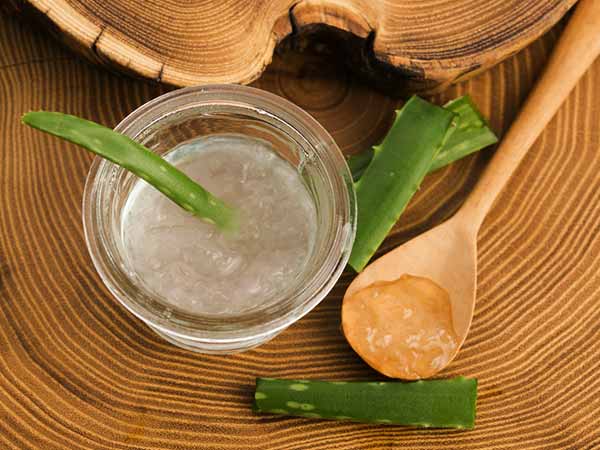
1. Aloe vera
Aloe vera gel is obtained from the leaves of the aloe vera plant. For centuries, people have been using aloe vera gel to treat a wide range of skin ailments including eczema. Aloe vera gel has antibacterial, anti-fungal, antimicrobial and wound-healing properties that may help manage eczema symptoms [2].
How to use:
- Take an aloe vera leaf and cut it into half.
- Scrape out the gel and apply it directly on the affected skin.
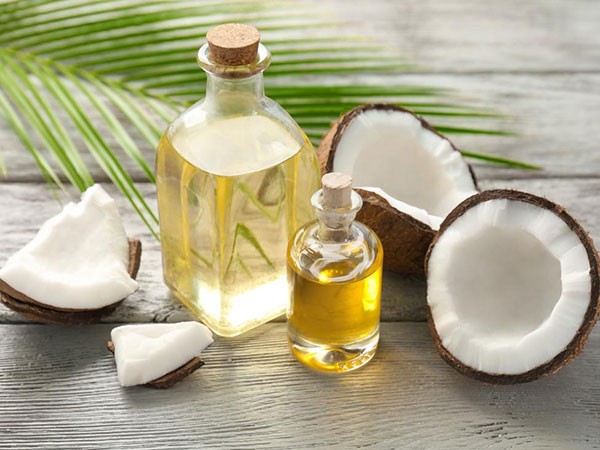
2. Virgin coconut oil
Virgin coconut oil possesses antibacterial properties that can significantly reduce eczema severity. Studies have shown the effectiveness of virgin coconut oil in patients with atopic dermatitis [3] [4].
How to use:
- Apply virgin coconut oil directly to the skin after bathing and before going to bed at night.
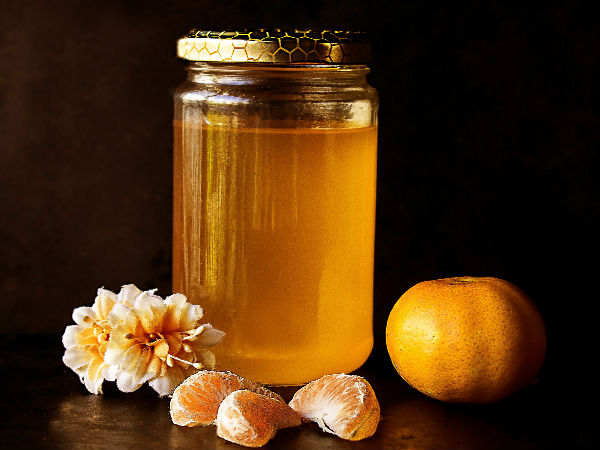
3. Honey
Honey is known for its medicinal properties; it has wound-healing, antibacterial and antifungal properties. Honey, particularly manuka honey, exhibits immunoregulatory and anti‐staphylococcal activities, which have been shown to effectively treat patients with eczema [5].
How to use:
- With the help of a cotton ball, dab a little amount of manuka honey on the affected skin.
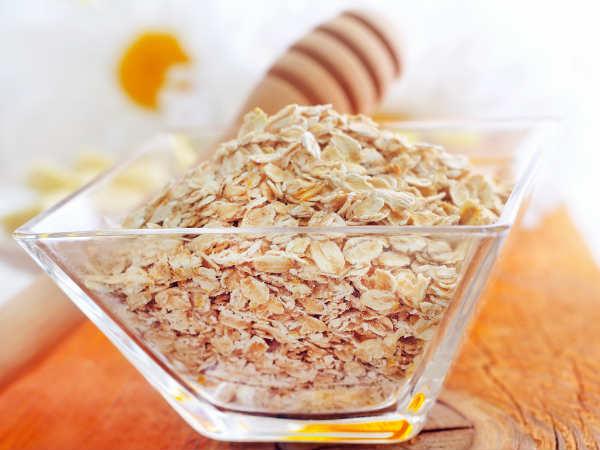
4. Colloidal oatmeal
Colloidal oatmeal is made from oats that have been ground to extract its skin-healing properties. Colloidal oatmeal contains antioxidant and anti-inflammatory activities that soothe and soften inflamed skin, and several studies have shown that it is beneficial in treating atopic dermatitis [6] [7].
How to use:
- Add powdered colloidal oatmeal to your lukewarm bath water and soak for 10-15 minutes to help soothe itchy and inflamed skin.

5. Sunflower oil
Sunflower oil is extracted from sunflower seeds. And research studies have shown that it protects the skin’s outer layer, hydrates skin and relieves itching and inflammation. A 2006 study showed that sunflower oil can help treat eczema [8].
READ RELATED: Which test is best for COVID-19?
How to use:
- Apply undiluted sunflower oil directly to the skin after bathing.
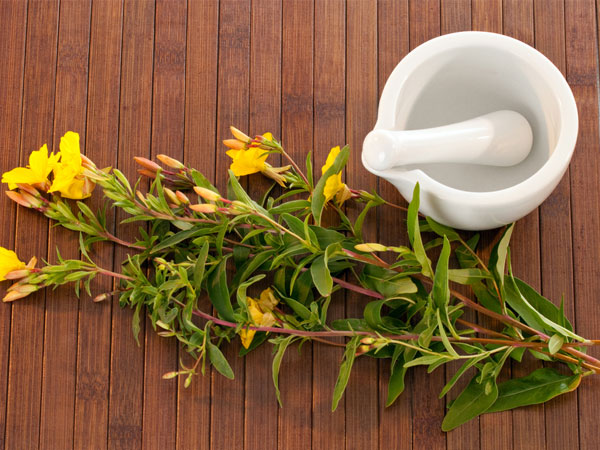
6. Evening primrose oil
Evening primrose oil is obtained from the evening primrose plant. Evening primrose oil is an excellent source of linoleic acid and gamma-linolenic acid. A 2018 study published in the Annals of Dermatology showed that evening primrose oil can be used effectively in treating mild atopic dermatitis [9].
How to use:
- Apply 1 ml of 20 percent evening primrose oil to the skin twice daily.
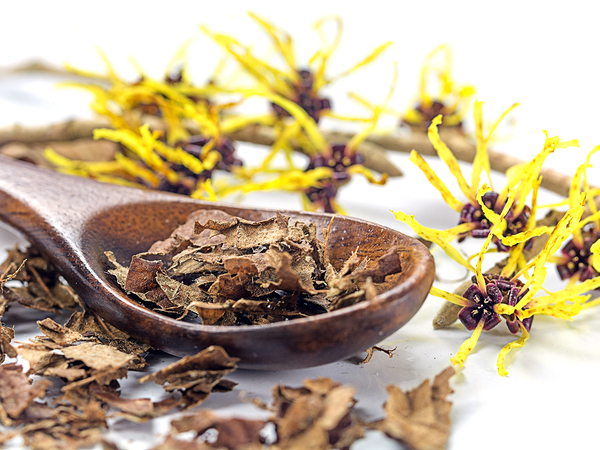
7. Witch hazel
Witch hazel (Hamamelis virginiana) is a plant with powerful medicinal properties. It contains antioxidants and anti-inflammatory properties that can help treat inflammatory skin conditions like eczema and psoriasis. A 2015 study showed that witch hazel can be beneficial in reducing itching, skin redness and scaling in patients with moderate to serve eczema [10].
How to use:
- Apply a small amount of witch hazel on a cotton pad and apply to the skin.
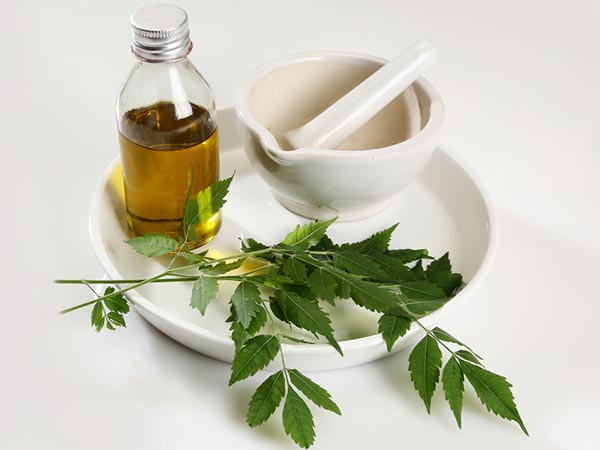
8. Neem oil
Neem oil is extracted from the neem seeds. Cold-pressed neem oil is widely used to treat eczema and other skin ailments such as acne, psoriasis and dry skin, etc. Neem oil has antibacterial, anti-inflammatory and analgesic properties that help in the treatment of eczema [11] [12]. In addition, the essential fatty acids and vitamin E in neem oil help keep the skin moisturised and hydrated in eczema-prone areas.
How to use neem oil:
• Mix neem oil with equal parts of coconut oil.
• Take a cotton pad and soak it into the oil and then lightly dab the affected area.
• Leave it overnight before washing it off.
Apart from the natural remedies, incorporating certain changes in your lifestyle can also help manage eczema symptoms. These include the following:
- Eat anti-inflammatory foods such as fatty fish, apples, berries, broccoli, spinach and yogurt.
- Try relaxation techniques like meditation or deep breathing to reduce eczema flare-ups.
- Do not bathe for too long.
- Avoid using soaps or detergents that contain fragrances and chemicals as it can cause skin irritation.
- Avoid sitting next to a fireplace during the dry winter months.
Note: Before trying any of these natural remedies for managing eczema symptoms, consult a doctor.
GET THE BEST BOLDSKY STORIES!
Allow Notifications
You have already subscribed
Source:


 Eczema Diet: What Foods Should You Eat And Avoid
Eczema Diet: What Foods Should You Eat And Avoid Neem Oil For Eczema: Benefits And How To Use
Neem Oil For Eczema: Benefits And How To Use 25 Natural Home Remedies For Allergies
25 Natural Home Remedies For Allergies
Leave a Reply